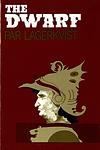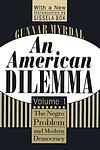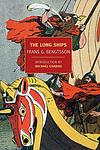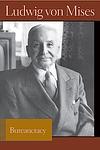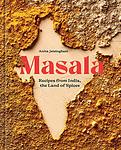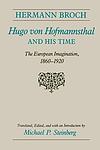The Greatest Swedish, Irish, Austrian Books From 1940 to 1949
Click to learn how this list is calculated.
This list represents a comprehensive and trusted collection of the greatest books. Developed through a specialized algorithm, it brings together 305 'best of' book lists to form a definitive guide to the world's most acclaimed books. For those interested in how these books are chosen, additional details can be found on the rankings page.
Genres
Countries
Date Range
Reading Statistics
Click the button below to see how many of these books you've read!
Download
If you're interested in downloading this list as a CSV file for use in a spreadsheet application, you can easily do so by clicking the button below. Please note that to ensure a manageable file size and faster download, the CSV will include details for only the first 500 books.
Download-
1. Pippi Longstocking by Astrid Lindgren
The book tells the story of Pippi Longstocking, a young girl with superhuman strength who lives alone in a colorful house in a small Swedish village. With her pet monkey and horse, Pippi embarks on a series of humorous and often absurd adventures, defying societal norms and adult authority with her unconventional wisdom and moral code. Despite her wild antics, Pippi's kindness, generosity, and courage make her a beloved figure in her community.
The 337th Greatest Book of All Time -
2. Death of Virgil by Hermann Broch
The novel explores the final hours of the Roman poet Virgil, who, while on his deathbed, contemplates the value and impact of his life's work, particularly his unfinished epic, the Aeneid. The narrative is a complex, stream-of-consciousness meditation on art, life, and death, with Virgil wrestling with his desire to burn his epic and the emperor's command to preserve it. The book delves into themes of the meaning of human existence, the role of art in society, and the clash between the individual's inner world and the external world.
The 348th Greatest Book of All Time -
3. Man's Search for Meaning by Victor Frankl
This book is a memoir written by a psychiatrist who survived the Nazi concentration camps during World War II. The author shares his experiences in the camps and his psychological approach to surviving and finding meaning amidst extreme suffering. He introduces his theory of logotherapy, which suggests that life's primary motivational force is the search for meaning, and argues that even in the most absurd, painful, and dehumanized situation, life can be given meaning.
The 567th Greatest Book of All Time -
4. The Royal Game by Stefan Zweig
"The Royal Game" is a gripping novella about a man who, while in solitary confinement by the Nazis, steals a book of past chess games and plays them all in his mind to keep his sanity. Once freed, he becomes a chess master but his mental state is fragile. On a cruise ship, he is challenged to a game by the reigning world champion, leading to a psychological battle that pushes him to the brink of madness.
The 833rd Greatest Book of All Time -
5. The Road to Serfdom by Friedrich von Hayek
"The Road to Serfdom" is a classic work of political philosophy and economics that argues against the concept of socialism and centralized economic planning. The author asserts that such systems inevitably lead to totalitarianism, infringing upon individual liberties and stifling innovation. The book further posits that only through free-market capitalism can societies maintain political and economic freedom. The author also explores the dangers of government control over means of production, illustrating that it leads to a loss of personal freedoms and the rise of dictatorial regimes.
The 985th Greatest Book of All Time -
6. The Dwarf by Par Lagerkvist
"The Dwarf" is a dark, philosophical novel set in the Italian Renaissance, narrated by a malevolent court dwarf who serves a prince. The dwarf is a symbol for the darker side of humanity, embodying all the malice, deceit, and manipulation that one can possess. His actions and viewpoint provide a cynical commentary on human nature and the moral complexities of power, war, and love. The novel explores themes of good and evil, faith and doubt, and the destructive side of human nature.
The 1022nd Greatest Book of All Time -
7. Capitalism, Socialism, and Democracy by Joseph A. Schumpeter
The book provides an in-depth analysis of the interplay between capitalism, socialism, and democracy, arguing that capitalism is a catalyst for creative destruction and innovation, but also paves the way for socialism due to its inherent instability and tendency to create wealth inequality. It further suggests that democracy, while imperfect, is the best system to manage these economic systems. The author presents a unique perspective on the inevitable rise of socialism, not through revolution as Marx predicted, but through the legal and systematic erosion of capitalism by democratic means.
The 1174th Greatest Book of All Time -
8. The World Of Yesterday by Stefan Zweig
The book is a poignant memoir reflecting on the transformative events and cultural atmosphere of Europe before World War I, through the interwar years and into the rise of the Nazis. It captures the author's experiences of growing up in a vibrant pre-war Vienna, the intellectual richness and artistic achievements of the time, as well as the profound sense of loss as the world he knew disintegrated into chaos and totalitarianism. With a mix of nostalgia and despair, the narrative serves as a lament for the lost world of European culture and as a warning about the fragility of peace and the human cost of war.
The 1481st Greatest Book of All Time -
9. An American Dilemma by Gunnar Myrdal
This book is a comprehensive sociological study on the issues faced by African Americans in the United States during the mid-twentieth century. The author examines the deep-rooted racial discrimination and inequality prevalent in American society, exploring its origins, implications, and potential solutions. The work is notable for its detailed analysis and its impact on subsequent civil rights movements.
The 1482nd Greatest Book of All Time -
10. The Long Ships by Frans G. Bengtsson
"The Long Ships" is a historical fiction novel centering around the Viking era. The story follows the adventures of a young Viking named Red Orm who is kidnapped by other Vikings, becomes a slave, then a chieftain's henchman, a merchant, explorer, and a soldier. His adventures take him from his native Sweden to Spain, England, Denmark, and Ireland. The novel explores the political, religious, and cultural landscapes of the era, providing a detailed and engaging portrayal of the Viking world.
The 1660th Greatest Book of All Time -
11. The Emigrants by Vilhelm Moberg
"The Emigrants" is a historical novel that follows the journey of a Swedish farming family who, driven by poverty and religious persecution, decide to emigrate to America in the mid-19th century. The narrative explores their struggles and hardships, from the decision to leave their homeland, the arduous journey across the Atlantic, to their eventual settlement in Minnesota. The book provides a profound and realistic depiction of the immigrant experience, highlighting the courage, determination, and resilience of the emigrants.
The 1708th Greatest Book of All Time -
12. What Is Life? by Erwin Schrödinger
"What is Life?" is a scientific exploration that delves into the intersection of physics and biology. The book presents the idea that life, at its most basic level, operates according to the laws of physics and chemistry. It introduces the concept of an "aperiodic crystal" that contains genetic information in its configuration of covalent chemical bonds, which later inspired the discovery of the structure of DNA. The book also discusses entropy and negentropy, suggesting that life feeds on negentropy to counteract the natural process of increasing entropy.
The 2031st Greatest Book of All Time -
13. King Solomon's Ring by Konrad Lorenz
This book is a fascinating exploration of animal behavior by a renowned zoologist. It delves into the author's personal experiences and observations of animals in their natural habitats, focusing particularly on birds, dogs, and jackdaws. The author uses these observations to draw conclusions about animal psychology and behavior, often comparing it to human behavior. The book is named after the biblical King Solomon, who was said to have a ring that allowed him to understand the language of animals.
The 2046th Greatest Book of All Time -
14. Bureaucracy by Ludwig von Mises
"Bureaucracy" is a critical examination of the structure and function of bureaucracies in both the public and private sectors. The author argues that bureaucratic management, with its focus on rules and regulations, is not only inefficient but also stifles innovation and individual initiative. He further contends that these problems are inherent in the nature of bureaucracy itself and are not simply due to poor management or corruption. The book also explores the impact of bureaucracy on economics, politics, and society as a whole.
The 2694th Greatest Book of All Time -
15. Balzac by Stefan Zweig
This book offers a comprehensive biography of the famed French novelist and playwright, Honore de Balzac. The author delves deep into Balzac's life, exploring both his personal and professional experiences. The narrative sheds light on Balzac's tumultuous relationships, his relentless work ethic, and his extraordinary ability to depict the society and people of his time through his literature. Balzac's passion, determination, and genius are vividly presented, giving readers an intimate understanding of the man behind some of the most influential works in French literature.
The 2696th Greatest Book of All Time -
16. The Man Without a Way by Erik Lindegren
"The Man Without a Way" is a thought-provoking exploration of a man's existential crisis as he navigates his way through life without a clear path or purpose. The protagonist grapples with feelings of alienation, disillusionment, and a deep-seated sense of despair, reflecting the author's own experiences and struggles. The narrative delves into the human psyche, examining themes of identity, self-doubt, and the quest for meaning in an increasingly complex and chaotic world.
The 2711th Greatest Book of All Time -
17. The Road by Harry Martinson
"The Road" is a reflective and poignant narrative that delves into the life of a young man who leaves his rural home to explore the urban landscape, seeking new experiences and understanding of the world. The protagonist's journey is both literal and metaphorical, as he navigates through various cities and encounters diverse people, each adding depth to his understanding of society and himself. The novel intricately portrays themes of isolation, the search for meaning, and the impact of industrialization on human connections and the environment, capturing the existential dilemmas of modern life.
The 2711th Greatest Book of All Time -
18. The Road to Klockrike by Harry Martinson
This novel tells the story of a wandering day laborer in Sweden during the early 20th century. The protagonist, who is mentally challenged, travels from farm to farm, performing odd jobs and struggling to survive. The narrative explores the harsh realities of life for the poor and disadvantaged, as well as the protagonist's interactions with various characters he meets along the way. Despite the hardships, the main character manages to maintain a sense of optimism and joy in life.
The 2711th Greatest Book of All Time -
19. Collected Poems by Nils Ferlin
"Collected Poems" is a compilation of the works of a renowned Swedish poet, capturing the essence of his unique style and lyrical prowess. The poems explore various themes such as love, life, death, and the human condition, often with a touch of melancholy and a keen sense of observation. The poet's ability to weave intricate emotions and vivid imagery into his verses makes this collection a testament to his literary genius.
The 2711th Greatest Book of All Time -
20. Kallocain by Karin Boye
This dystopian novel presents a totalitarian world where the government exercises complete control over its citizens' lives, even their thoughts. The protagonist, a loyal soldier, invents a truth serum named Kallocain, which the government uses to extract citizens' innermost secrets. As the story unfolds, the protagonist begins to question the morality of his invention and the regime he serves, leading to a deep personal crisis. The book explores themes of individual freedom, privacy, and the dehumanizing effects of totalitarianism.
The 2711th Greatest Book of All Time -
21. A Burnt Child by Stig Dagerman
The novel delves into the psychological turmoil of a young man grappling with the complexities of adulthood and the haunting specter of his father's death. As he navigates the murky waters of guilt, desire, and rebellion, he becomes entangled in a web of relationships that challenge his understanding of love, morality, and his own identity. Set against the backdrop of post-war Sweden, the story is a poignant exploration of grief, the struggle for self-discovery, and the painful journey towards coming-of-age in a world that seems both indifferent and unforgiving.
The 2942nd Greatest Book of All Time -
22. The Land Of Spices by Kate O'Brien
"The Land of Spices" by Kate O'Brien is a captivating novel set in a Catholic convent school in Ireland during the early 20th century. The story follows the life of Mother Marie-Helene, a French nun who becomes the headmistress of the school. As she navigates the challenges of her position, she also grapples with her own desires and the conflicts between her faith and her personal longings. Through vivid descriptions and complex characters, the novel explores themes of love, duty, and the struggle to reconcile one's desires with societal expectations.
The 5212th Greatest Book of All Time -
23. Hugo Von Hofmannsthal And His Time by Hermann Broch
The book provides a comprehensive examination of the life and work of a prominent Austrian writer and his influence during a period of significant cultural and intellectual change in early 20th-century Europe. It delves into the writer's relationships with contemporaries, his contributions to literature and drama, and his role in the broader context of the modernist movement. The author critically assesses the writer's legacy, exploring the complexities of his artistic endeavors and the societal shifts that shaped his era, offering readers a detailed portrait of a man whose work encapsulated the spirit of his time.
The 7168th Greatest Book of All Time -
24. Tales From Bective Bridge by Mary Lavin
"Tales From Bective Bridge" is a collection of short stories that explores the lives of ordinary people in rural Ireland. Set in the mid-20th century, the stories delve into themes of love, loss, and the complexities of human relationships. Lavin's vivid storytelling and keen observation of human nature bring these characters to life, capturing the beauty and struggles of everyday life in a small Irish community.
The 7960th Greatest Book of All Time
Reading Statistics
Click the button below to see how many of these books you've read!
Download
If you're interested in downloading this list as a CSV file for use in a spreadsheet application, you can easily do so by clicking the button below. Please note that to ensure a manageable file size and faster download, the CSV will include details for only the first 500 books.
Download




